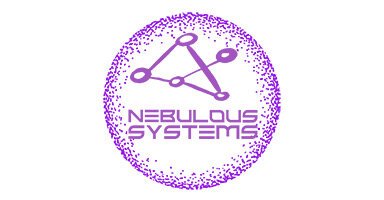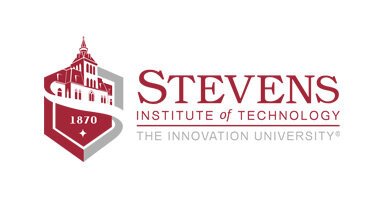Introduce yourself
to the reader
Your name
Luis de la Torre
Your professional background
I have a Bachelor in Physics, with a specialization in Automatic Control and Instrumentation. I have also completed my Ph.D. in Computer Science.
Your passion for what you do
While my main job is being a University Professor, I’d say research and innovation takes 50% of my time. I have always felt passionate about Science and Engineering. Since I started my Ph.D. in 2008, I have focused on cyber-physical systems, remote sensoritazion and operation of devices through HTTP protocols. Nowadays, I continue working in these topics, adding innovative solutions, such as blockchain technologies to the mix.
Did you apply as a Researcher or Innovator?
I applied as an Innovator, but I feel I could have applied as a Researcher too, as I currently represent both roles (see my answer to question 2)
A company you represent
I represent Nebulous Systems, a spin-off company of the University of Huelva.
University/Research department you represent?
Why is your project important?
I represent both a public university (UNED, which is the Spanish Open University for Distance Education) and a startup IoT company I co-founded, called Nebulous Systems.
What is the problem you are trying to solve?
An online lab (OL) is an IoT virtual or real lab resource that can be used remotely, from the Internet. While OLs provide numerous benefits for both education and research, they are not so widely adopted, mainly because:
They require extra development time and effort to prepare the OLs apps
There is not standardized method to borrow or rent existing OLs
What is unique in your approach/ process/ methodology?
I focused on solving the two limitations above, by:
Designing and creating a software solution that builds OLs’ apps automatically based on the IoT lab metadata
Defining a smart contract in a blockchain that can be used to share/rent OLs. This would make OLs public, decentralized, and easily shareable
What are the tangible results you have achieved?
There are three tangible results:
A paper sent for publication in the IEEE Transactions on Industrial Informatics journal
A software shared for free with the community in GitHub and GitLab
A specification for a blockchain smart contract that is intended to be used for sharing cyberphysical systems that could be used as online labs for education and/or research
Why was collaboration with the US your interest in the first place? Why did you apply to the NGI Explorers programme?
Firstly, the US Node I collaborated with has a much larger experience on blockchain, which was very important to me because I had zero experience with these technologies and solutions.
Secondly, having a contact in the US, so that OLs hosted in Europe can be tested overseas, is a great plus.
Lastly, I always had very clear that doing research stays abroad is an excellent way to learn, open doors, and promote your solutions and research.
How do you see your project development in the future?
What impact will the results have on society or environment?
In a world that has recently gone (and still goes) through a pandemic, it is easy to understand how OLs can benefit the society. The possibility to perform lab activities, either for students, supporting their learning, or for researchers, supporting their work, enables a way to keep working even when the situation would have prevented these people from going to the labs to carry out their tasks. A post-pandemic world, which now realizes of the advantages of remote work, also values this possibility, as it allows many people to travel less on a daily basis and live in more remote areas if they want or need to.
This project facilitates the development and share of OLs, so it helps in getting a broader adoption of these solutions and, therefore, in reaching the advantages described above.
What impact do you foresee on your further development/ research/
career/ product or service growth
I am now interested in developing further the applications of blockchain technologies to the process of sharing cyber-physical systems and OLs.
Right now, a smart contract specification has been defined, but now a real-world implementation is needed and has to be tested.
On the other hand, the solutions developed and proposed in this project can also be applied in more general Industry 4.0 and IoT scenarios.
Nebulous Systems is already adopting these solutions to commercialize them, and we expect to extend them to apply them in more use cases.
What is the ultimate result you are trying to achieve?
I am trying to develop the tools and mechanisms that would allow companies, industries, and public institutions to use their cyber-physical systems, IoT devices and lab equipment from the Internet, both in a secure and in an easy way, and having the possibility to share them (either for free or renting them) with others.
What are your next plans? Any sustainability in collaboration with the
US Node?
A second joint paper with the US Node about the smart contract specification, implementation and testing is planned.
Applying for other projects to get funds to develop the idea further is also a priority. This would allow to build an international network of educational and research institutions that would share their OLs in a blockchain, having their lab resources shared worldwide.
What is the biggest benefit the NGI program has offered to the development of your idea/ product/ service/ career? e.g. What was possible thanks to the NGI that it wouldn’t without?
I couldn’t mention just one thing. There were so many benefits: the contact and joint work with the US node, the sessions with other Explorers and the NGI Explorers Team, the information received about other NGI programs...
Without any of those, I wouldn’t have been so motivated and supported to reach the results I obtained during my Expedition.
What is your reflection on the award you received from the NGI Explorers program and recognition of your efforts by external parties?
I am extremely honored to have received this recognition. I wasn’t expecting it, as I shared some presentation sessions with other Explorers, and I knew how good the level was in both their ideas and projects. This award motivates me to keep working even harder in the topic to get better and better solutions that can be applied to remote experimentation.



